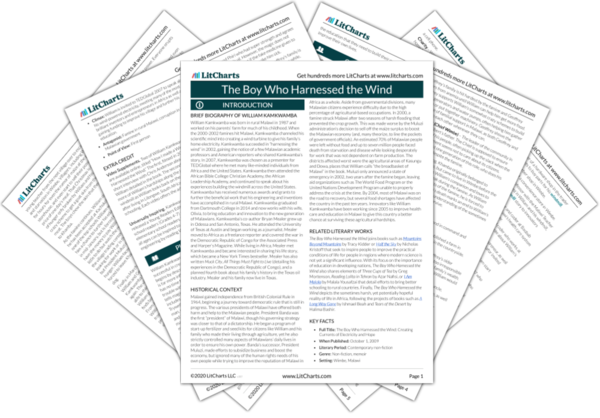AI ToolsNew
Tools to make learning and teaching easier
|
Previous
Dowe
|
Ganyu Term Analysis |
Next
Gule Wamkulu
|
In Malawi, we say these people are “grooving” through life, just living off small ganyu and having no real plan. I started worrying that I would become like them, that one day the windmill project would lose its excitement or become too difficult to maintain, and all my ambitions would fade into the maize rows. Forgetting dreams is easy. To fight that kind of darkness, I kept returning to the library every week.

Unlock explanations and citation info for this and every other The Boy Who Harnessed the Wind quote.
Plus so much more...
Get LitCharts A+